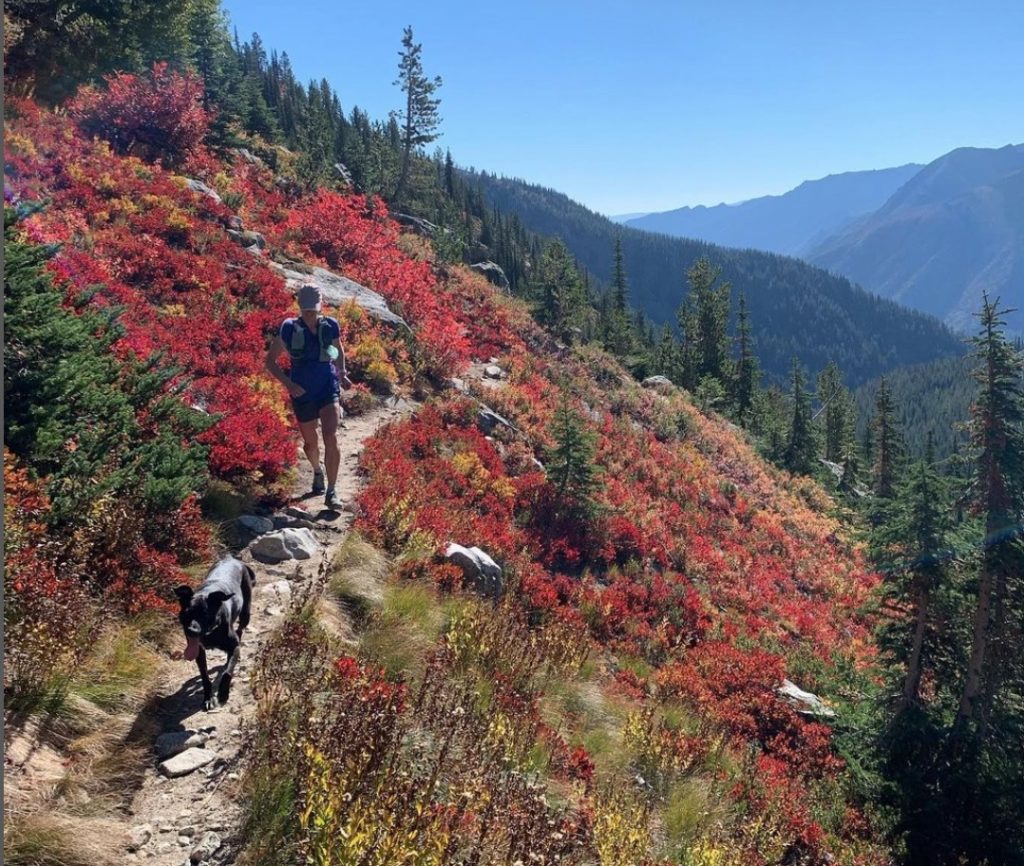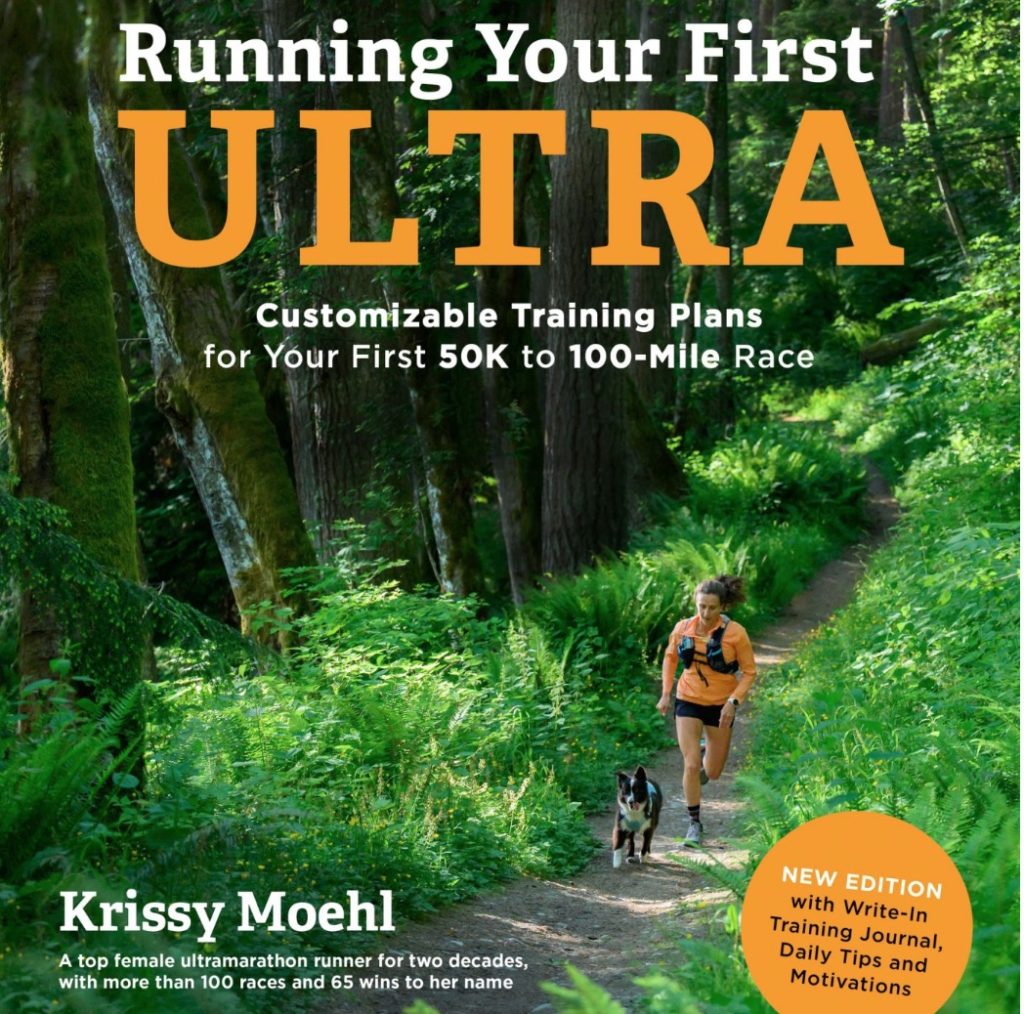Although it’s important to run the miles and put in consistent training, sometimes you gain the most from reflecting on what you have done over past days, weeks, months and years of running. One of the world’s best ultramarathoners, Krissy Moehl, discusses the importance of training logs and creating space for new adventures.
While we often look to elite runners for the best ways to approach the mental and physical components of training, sometimes we need to pay even closer attention to our own running. Many of us use training logs – whether it’s an old school notebook, a google doc, or a website like Garmin or Strava that does most of the work for you.
Training logs give us an opportunity to keep track of metrics like mileage, pace and elevation, but you could be gaining even more if you start keeping track of one crucial thing: how did you feel?
Krissy Moehl on the Value of Reflection
This week’s guest on the podcast, Krissy Moehl, is an elite ultramarathoner and coach who has had unique longevity in the sport and is helping her athletes to do the same. Krissy has completed hundreds of challenging races and has more than 50 first place female finishes, along with several overall wins.
For both herself and the athletes Krissy coaches, reflection is an important part of the process. Reflection allows us to see where we’ve been, know how to move forward, and can give us more confidence to reach daunting goals.
Training is one piece of the complex and busy lives most of us lead, and training doesn’t happen in a vacuum. We often check one box and move onto the next thing, without giving each moment or activity a little bit of quality time for reflection.
When it comes to health and durability in the sport, Krissy and I talk about how it’s essential to pay attention to the ups and downs of how you feel in training. Knowing when to push and when to back off and recover is a skill that too many of us learn too late!
Krissy and I discuss a wide range of topics, including the following:
- Her recent 200 mile adventure with friends on the Arizona Trail
- How she balances coaching, running, race directing, and settling into her new home
- What has changed in ultrarunning and training since her first book came out in 2015, and how the new edition reflects that
- The importance of a training log for runners and coaches alike
- The most important question you should ask yourself after each run
- Krissy’s upcoming plans and adventures
Krissy’s longevity in the sport offers a unique perspective that will help you get the most out of your own running. Enjoy!
Subscribe to the podcast in iTunes, Spotify, Stitcher, or iHeartRadio.
Links & Resources from the Show:
- Check out the second edition of Krissy’s book
- Follow Krissy on Instagram
- Learn more about the race Krissy directs, the Chuckanut 50k
- Watch Krissy’s Ted Talk on learning through movement
- Listen to my previous podcast with Krissy, episode 205
Thank You InsideTracker!

This episode is brought to you by InsideTracker, one of the most reputable blood testing companies in the world. They were founded in 2009 by aging, genetics, and biometrics scientists to help you analyze your body’s data and get a firm idea of how well you’re responding to training.
Understanding your body’s biomarkers, from stress hormones to testosterone to Vitamin D, can help you figure out if you’re over-training, under-training, optimally training, or if you have a health issue that might be affecting your running. But the best part is that they give you personalized optimal ranges for each of these biomarkers and a host of ways to improve these markers through diet, lifestyle, or exercise changes.
I’ve personally gotten three Ultimate tests from them and the process is simple, easy, and very eye-opening if you haven’t done a deep dive on your biomarkers yet. Of all the investments you can make in your running, this one is like getting a detailed checkup or regularly scheduled maintenance for your internal physiology.
If you’re ready to take control of your health and optimize your training, get 25% off any of their blood tests with code STRENGTHRUNNING at InsideTracker.
Thank you to our sponsor, the Spartan Race Series!
You’ve probably heard of Spartan Races – but you probably don’t know that they offer such a wide variety of types of races. From short to long-distance obstacle courses – and even ultra distances, to trail races, stadium races, and even city races in major metropolitan areas.
What I love about obstacle course races is that they are a great diagnostic tool to help you pinpoint what area of your fitness is lacking. Do you have a general aerobic deficiency? Do you struggle with upper body strength? Can you handle the stop and start nature of OCR’s? Do you have the mobility to perform the obstacles?
Signing up for a race that challenges you in a different way can help you find out more about yourself as an athlete. Ever since I tried my first obstacle course race in 2012, I’ve loved these events. They are demanding and require you to be a well-rounded athlete, something that I wholeheartedly endorse here on this podcast. Go to spartan.com to find a local race near you. If you’re in Colorado, I hope to see you on June 12th at the Colorado Springs Spartan Race.

